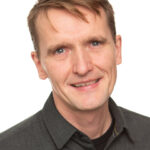The Making and Breaking of Trust in Modern Societies
The perception that fellow citizens can be trusted has been pinpointed as pivotal for the functioning of modern political, economic, and social systems. It is one of the three indicators used in The World Policy Forum’s solidarity index. In this presentation, Professor Christian Albrekt Larsen discusses the relevance of social trust, the basic patterns across and within countries, and the contemporary challenges to high-trust societies. The main examples are Denmark and the United States. Within the last five decades, the former has experienced a rise in social trust, positioning Denmark as the highest trusting society in the world, while the latter has experienced a decline in social trust, which has had severe consequences for the U.S. and the World.
Christian Albrekt Larsen (CAL) has specialised in the question of how to build social coherent societies in open economies and multicultural settings. The academic work of CAL demonstrates that the institutional structure behind the “Nordic model” still provides a promising answer to this fundamental question of social science. Internationally, CAL is known for his work on how institutions, especially universal welfare schemes, enhance public support for anti-poverty policies and social trust. The issue of migration and assimilation into Northern European host countries is prominent in CALs’ current project portfolio. CAL has received a Danish Sapere Aude II research leader elite grant (2012-2015) and a Fulbright grant (2015-2016). CAL was a member of the Danish national research council for social science (2015 – 2021).
To register for this event, please write an email to [email protected]
References:
Christian Albrekt Larsen. (2013). The Rise and Fall of Social Cohesion : the Construction and Deconstruction of Social Trust in the US, UK, Sweden, and Denmark. Oxford University Press. (link)
Christian Albrekt Larsen (Eds.). (2022). Migrants and Welfare States. Cheltenham, UK: Edward Elgar Publishing. (link)

